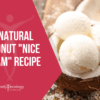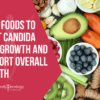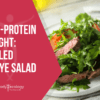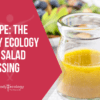The 25 Key Reasons You Want to Dramatically Reduce or Avoid Sugar in Your Diet
I don’t think there is any controversy about the fact that sugar is not good for you. But do you know WHY sugar is bad for you?
The artificial sweetener market seems to focus on alternative sweeteners for weight control or blood sugar issues like diabetes, but rarely is there information about how sugar lowers your immunity and robs your bones of minerals.
And just as important, there is little information on healthy alternatives for sweeteners. In fact, you DO NOT have to turn to artificial sweeteners for sweet tastes. Not only do artificial sweeteners harm your health, they also have adverse effects your efforts at staying slim.1
The Importance of Sweet Tastes
At Body Ecology, we understand how important the sweet taste is in your diet. As explained in Ayurveda (a system of natural medicine which originated in India several thousand years ago), there are six tastes: salty, bitter, sour, pungent, astringent and sweet.
Ayurvedic medicine says that taste is a way to higher consciousness AND that a balance of these six tastes is the way to prime your body and mind for digestion.
Similarly, Chinese medicine recognizes that a balanced diet consists of 5 tastes: spicy, sour, bitter, sweet, and salty.
But it’s not just ancient healing medicine that tells us sweet is important – we also know we get great satisfaction from the sweet taste. The trick is, how do we find balance in our desire for sweets and if we want to sweeten foods and drinks, how do we do this in a healthy way?
This article will cover the dangers of sugar and healthy alternatives.
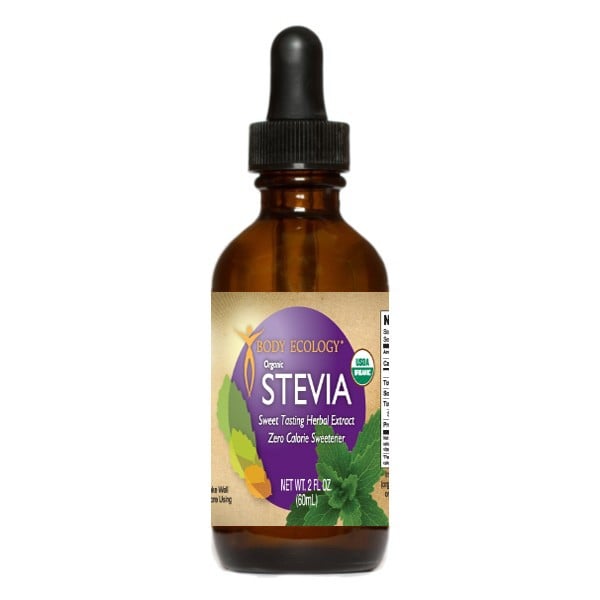
Sugar tastes good, but it feeds candida, robs your energy and contributes to a whole host of health problems. Do yourself and your kids a favor and enjoy sweet tastes the Body Ecology way!
Stevia has 0 calories, does not cause a spike in your blood sugar levels and can help you overcome sugar cravings!
Sugar Basics
Most of us have seen white granulated sugar all of our lives, but what makes it bad for us? Made up of carbon, hydrogen and oxygen, sugar (or sucrose) is a carbohydrate. Sucrose is made up of two simpler sugars, fructose and glucose.
Sucrose is also naturally in plants, including fruit. Most fruits are not on the Body Ecology program, since they are too sweet and feed the systemic fungal infection, candida. Very sour fruits like lemons, limes, black currant juice and sour grapefruit are usually fine for most people.
There IS a difference between naturally occurring sucrose in plants and the sucrose found in granulated sugar or the high fructose corn syrup often used to sweeten processed foods.
Both granulated sugar and high fructose corn syrup go through a refining process…they are called “empty calories” because they offer no nutritional value. In addition, they are addictive and rob your body of energy and health.
25 Reasons to Avoid Sugar
Sure sugar tastes good, when you are used to eating the Standard American Diet, high in processed foods. But once you start eating the sour-tasting fermented foods on the Body Ecology program, you lose your cravings for sugar…and you are on your way to natural energy and greater health!
Here some of the dangers of consuming sugar:
- Feeds candida
- Promotes wrinkling and aging skin2
- Makes your blood acidic3
- Can lead to osteoporosis.4
- Rots your teeth5
- Raises your blood sugar level6
- Contributes to obesity7
- Is addictive (almost as much as drugs) 8
- Can create the urge to binge9
- Provides ’empty calories’ with no nutritional value10
- Contributes to diabetes11
- Robs your body of minerals.12
- Robs you of energy13
- Contributes to heart problems14
- Can cause cancer15
- Contributes to ulcers16
- Can cause gallstones17
- Contributes to adrenal fatigue
- Can suppress your immune system18
- Raises the level of neurotransmitters called serotonin19
- Weakens eyesight
- Sugar can cause hypoglycemia (low blood sugar levels).
- Can cause aging20
- Can contribute to eczema21
- Can cause arthritis22
To learn more about the dangers of sugar and find out if you’re a ‘sugarholic’, read Lick The Sugar Habit, by Nancy Appelton, PhD.
If you suspect you are a ‘sugarholic,’ however, this could be a sign you have Candida. Rice University researchers estimate that 70% of Americans have this systemic fungal infection.23 Yes, it is an infection and can become a serious life-threatening infection. The yeast love sugar. When you eat sugar you make your blood more acidic and the yeast infection becomes even more acute.
Fill out this candida questionnaire to find out if candida could be affecting your health.
Sweets the Body Ecology Way
Once you add fermented foods and drinks to your diet, you will soon lose your desire and cravings for sweet foods.
If you do give in to the temptation of sugar, consider having fermented foods and drinks along with them. The healthy microflora in fermented foods and beverages will use the sugar as its food, reducing the negative effects on your body.
We’ve heard from many customers, that after being on the Body Ecology program and enjoying fermented foods and drinks, they no longer crave sugar and very importantly find they are quite satisfied with the more subtle natural sweetness in grains, fruit and sweet vegetables. When you do want to sweeten your foods and drinks, Stevia (and Lakanto) are great alternatives.
Stevia, an extraordinarily sweet herb, is 200 – 300 times sweeter than sugar, has no calories and does not cause a spike in your blood sugar. In fact, the blood sugar spike is what’s behind so many of the dangers of sugar.
Lovely Lakanto
For decades, it has been my goal to create healthy, happy adults and children for generations to come. This is what drives my passion for creating and refining the Body Ecology program and bringing healthy products to the market.
Many years ago, I was one of the pioneers who brought stevia into the Western world, eventually perfecting the delicious, safe blend of Reb A liquid concentrate Stevia with my team at Body Ecology.
Then, I discovered another all-natural sweetener that has all the benefits of Stevia and more – you can even easily bake with it! Enter amazing Lakanto…
I am so excited about this sweetener because it is one more way that you – and your kids – can enjoy sweet treats without the dangers of sugar. We’ve been experimenting with this special sweetener in our test kitchens and are excited about how easy and versatile it is. There’s nothing else like it on the market!
Body Ecology’s Lakanto is a safe, totally natural sweetener that:
- Has virtually no calories.
- Has no affect on your blood sugar.
- Will NOT feed the candida yeast.
- Looks, tastes, and bakes like sugar.
- Can be used like sugar, in a one-to-one ratio, in any recipe.
The Luo Han Guo fruit contained in this Lakanto has been favored as a sweet remedy for colds, coughs, and gastrointestinal disorders for centuries. It’s called “the longevity fruit” by the Chinese because the steep mountain fields in Guangxi Province where it is grown have an unusual number of residents that live to be 100 years old or more!
Here are all the different ways both Lakanto and Stevia can add some sweetness to your diet – enjoy!

RECOMMENDED FOR YOU! Sugar can be at the root of many health issues – and when it comes to knowing alternatives for you to use so you can still enjoy eating, we’ve got you covered!
Our Stevia has 0 calories, doesn’t cause blood sugar levels to spike and can help you overcome sugar cravings!
Sources
- Things that Make You Fat. CBS Broadcasting, Inc. December 2004.
- Perricone, Nicholas, MD, FACP. Ask the Doctor. June 2004.
- Quinn, Shannon. ‘I vant good blood.’ Better Nutrition. June 1997.
- Appelton, Nancy, PhD. Lick The Sugar Habit, 2nd Edition. Avery. 1988.
- Foreman, Judy. Sugar’s ’empty calories’ pile up. Boston Globe. March, 1999.
- Novel Fiber Limits Sugar Absorption. Life Extension Magazine.
- Ibid.
- Victory, Joy. Studying the ‘Sweet Tooth.’ ABC News. May 2006.
- Ibid.
- Foreman, Judy. Sugar’s ’empty calories’ pile up. Boston Globe. March, 1999.
- High Blood Sugar. Life Extension Magazine. July 2005.
- Appelton, Nancy, PhD. Lick The Sugar Habit, 2nd Edition. Avery. 1988.
- Quinn, Shannon. ‘I vant good blood.’ Better Nutrition. June 1997.
- Quinn, Shannon. ‘I vant good blood.’ Better Nutrition. June 1997.
- Ibid.
- Ibid.
- Ibid.
- Family Nutrition: Sugar. AskDrSears.com.
- Appelton, Nancy, PhD. Lick The Sugar Habit, 2nd Edition. Avery. 1988.
- Ibid.
- Allen, Shawn, et. al. How Can I Get Relief from Eczema? Natural Health. October 2005.
- Appelton, Nancy, PhD. Lick The Sugar Habit, 2nd Edition. Avery. 1988.
- Biologists ID Defense Mechanism Of Leading Fungal Pathogen. Rice University. June 2004

